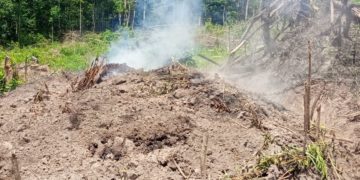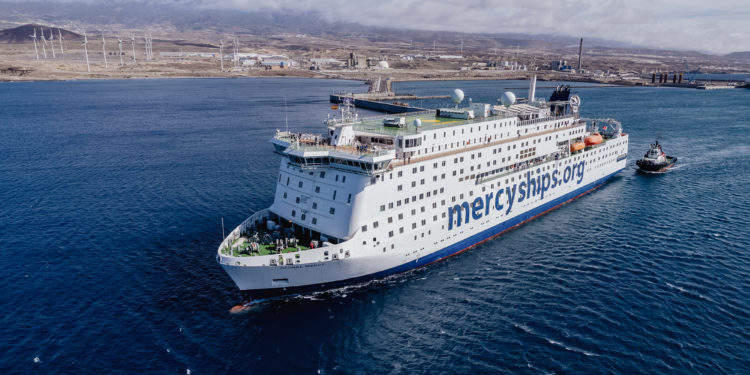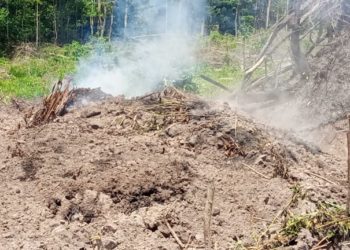The humanitarian organisation Mercy Ships is expected to return to Sierra Leone next year, thanks to an appeal by the Sick Pikin Project International.
The child health care campaign group says it made the appeal in light of the huge need of the life saving services the charity provides.
Ishmeal Alfred Charles, Lead Campaigner and Co-Founder of the Sick Pikin Project International, last week returned from the Senegalese capital, Dakar, where one of Mercy Ship’s vessels – the Africa Mercy – is currently stationed. Charles tells ManoReporters that the return to Sierra Leone of the floating hospital, as the Mercy Ships vessels are called, depends on the political situation in the country after next year’s general elections. The ship is expected to anchor exactly in August, 2023, two months after Presidential and parliamentary elections scheduled for June.
Charles adds that the Sierra Leone government will also be required to help provide a space where the ship will anchor.
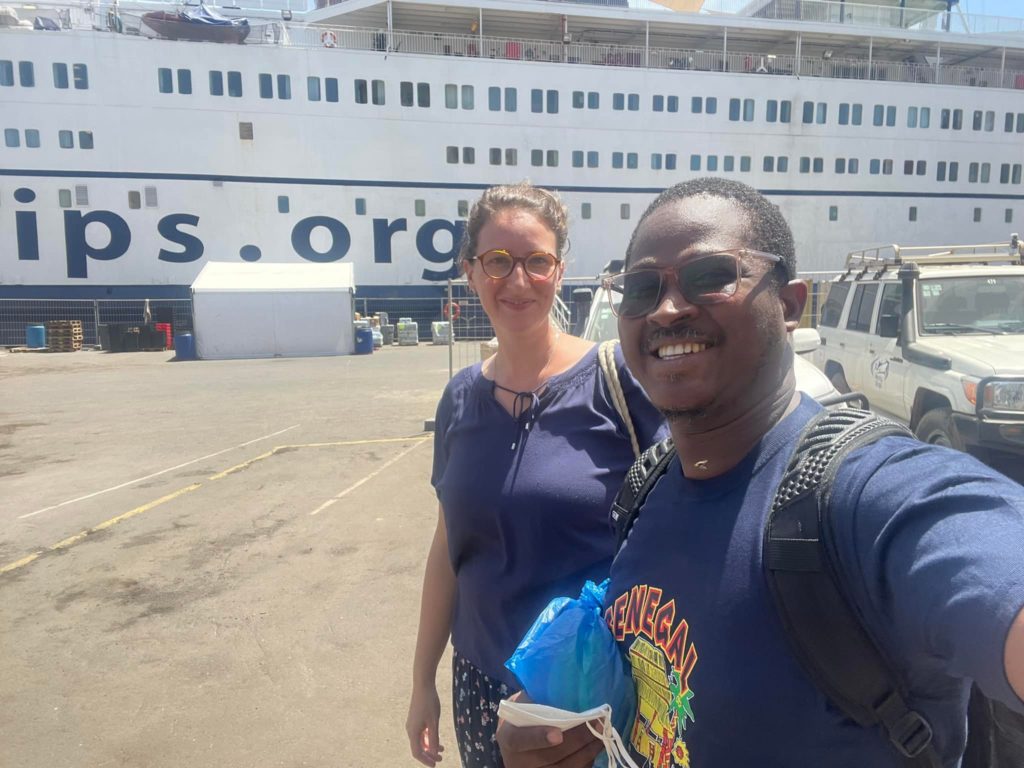
A team from Mercy Ships is expected in Freetown this October to prepare the ground for the vessel’s arrival, he adds.
Mercy Ships, which runs the largest non-governmental hospital ships in the world, operates as a charity based on the Christian faith, providing humanitarian aid like free health care, community development projects, community health education, mental health programs, agriculture projects, and palliative care for terminally ill patients.
Its vessels, equipped with state-of-the-art facilities, offer clean water, reliable electricity and care centers.
Through its fleet of ships, which are also referred to as Vessels of Hope, the charity has provided free surgery and life changing medical treatments to children and adults around the world since 1978.
For Charles, the return of the Africa Mercy to Freetown is “very significant” not just for the ‘sick pikin’ project, but also to the rest of the Sierra Leonean population.
“We have many children who are sick and who need assistance to access surgery,” he says, adding: “Accessing complex medical services in Sierra Leone is difficult, partly due to lack of expertise or lack of necessary medical supplies.”
Mercy Ships services include hydrocele repairs, maxillo-facial, plastic reconstructive surgeries, obstetric fistula, ophthalmic care, orthopaedic correction and surgeries, and dental treatment.
All these, says Charles, are among the many cases his organization has been dealing with.
“These conditions are everyday conditions in Sierra Leone. These are critical conditions that people are suffering from. Tumors, swelling on the head, etc,” he notes.
The Sick Pikin project, in existence since in 2018, strive to help save the lives of sick children whose families cannot afford the medical bill for major and complex surgeries. The organization relies entirely on donations to pay for treatments of children with conditions that fall under its purview.
A lot of the cases the project has dealt with required overseas treatment. The patients often go to either Ghana or India, which have better health facilities than Sierra Leone. And this often require huge amounts of money.
Sick Pikin project volunteers, including Charles himself, regularly line the highways of Freetown soliciting donations from the public. They also organize fundraisers, like the annual Sick Pikin Marathon.
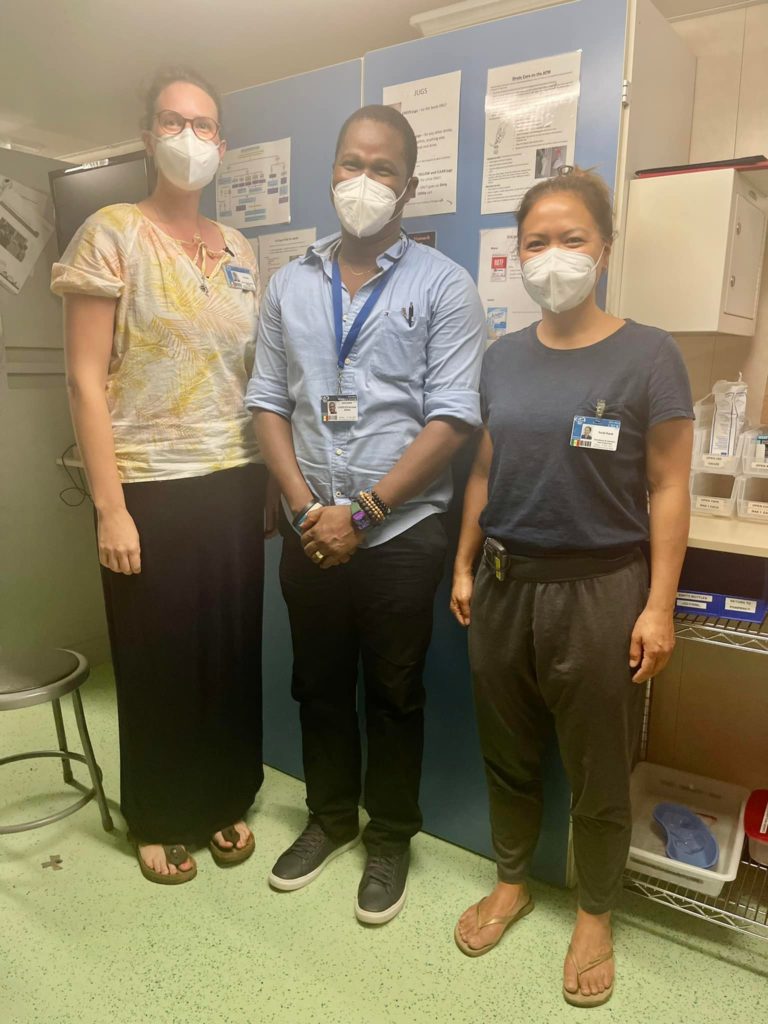
Mercy Ships’ services are all free of charge. It works in partnership with local organizations in the countries they visit. In Sierra Leone, it works with the Aberdeen Women Centre in Freetown, which sometimes handle some of the cases reported to the Sik Pikin project.
Charles says some of the cases that are “too complex” are what they require the ship for.
Charles was accompanied in his Dakar trip by a child with one such complicated case, who was operated on by Mercy Ship surgeons.
When the Africa Mercy arrives in Freetown in August next year, it will be its sixth field service to Sierra Leone in two decades.
Mercy Ships made its first visit to the country in November 2001 and stayed for four months. On its last visit in 2011, it stayed for 10 months, during which period its crew performed 3, 300 general surgeries, over 2, 600 eye surgeries, more than 34, 700 dental treatments and approximately 10, 000 medical consultations, according to the organization. It adds that it also trained more than 450 local health care professionals in their areas of expertise.
In 2019, Mercy Ships’ CEO, Donovan Palmer, reportedly signed agreements with the Sierra Leone government paving the way for the ship’s future return to the country.
According to reports, they signed both an Accord De Siege and a Protocol Agreement which marked the beginning of “a fresh working partnership” based on a country engagement plan for 2019-2023. Those agreements also covered necessary collaboration in-country to begin assessment and design of programs as well as arrangements for port, security, water and sanitation necessary for a future port visit.

